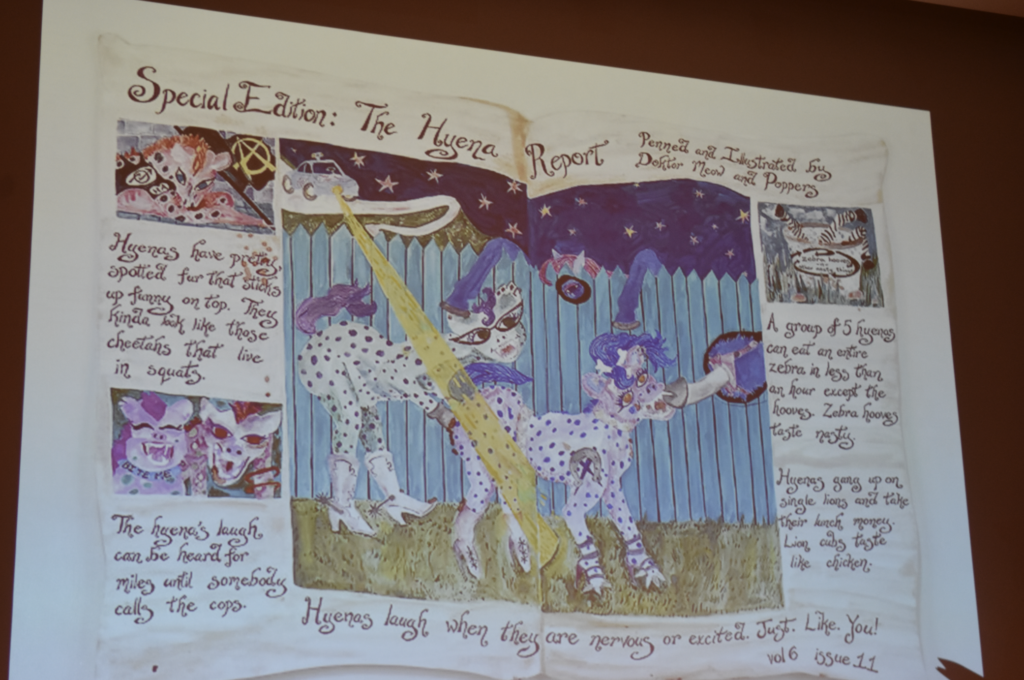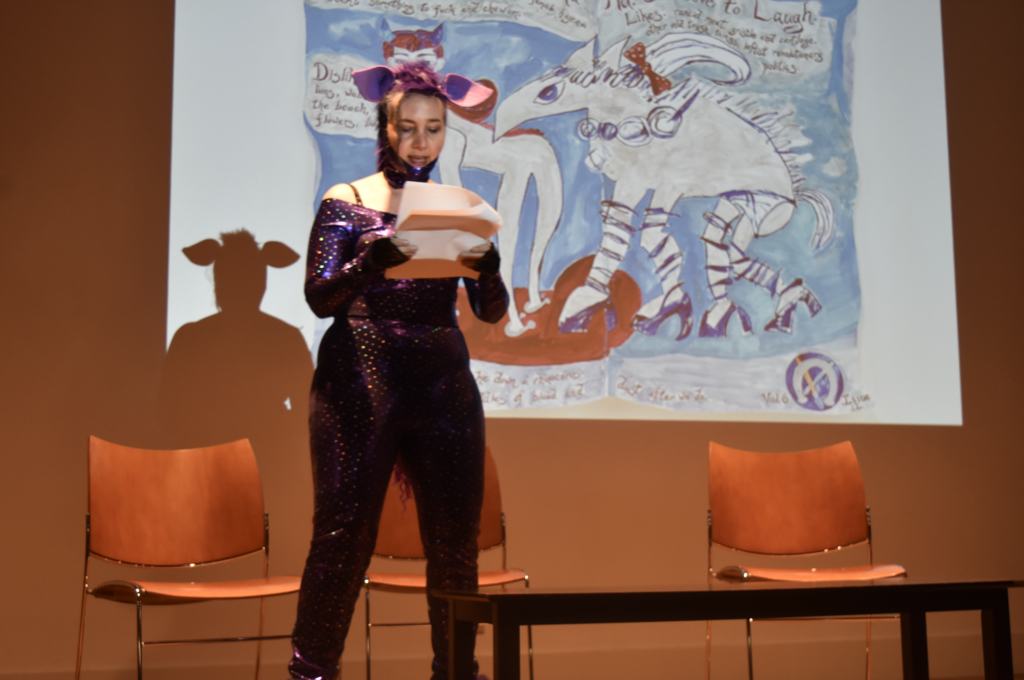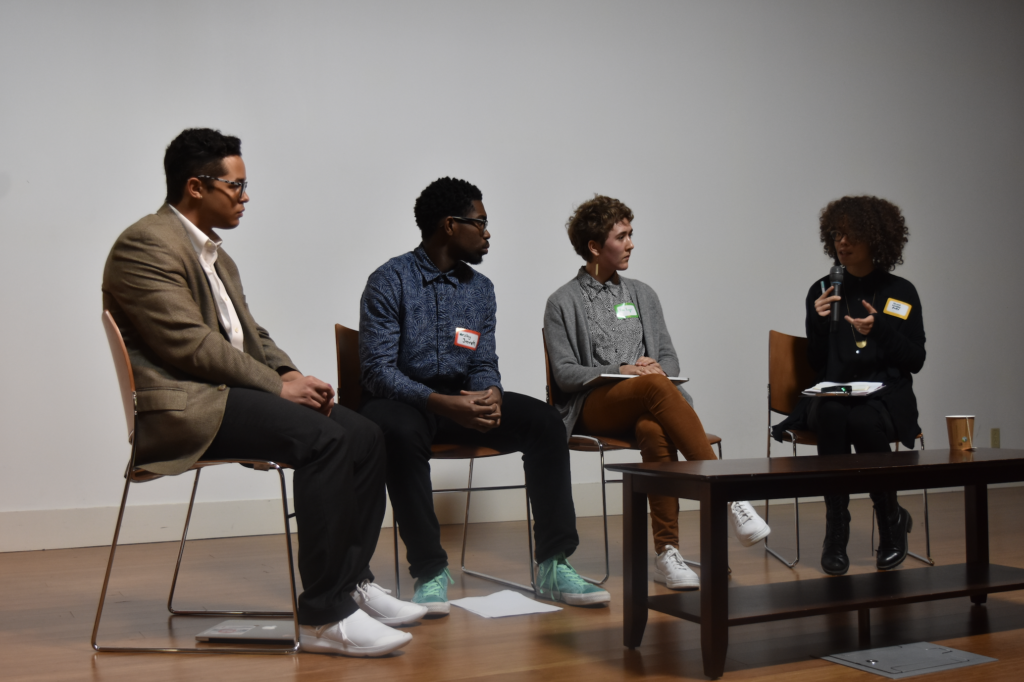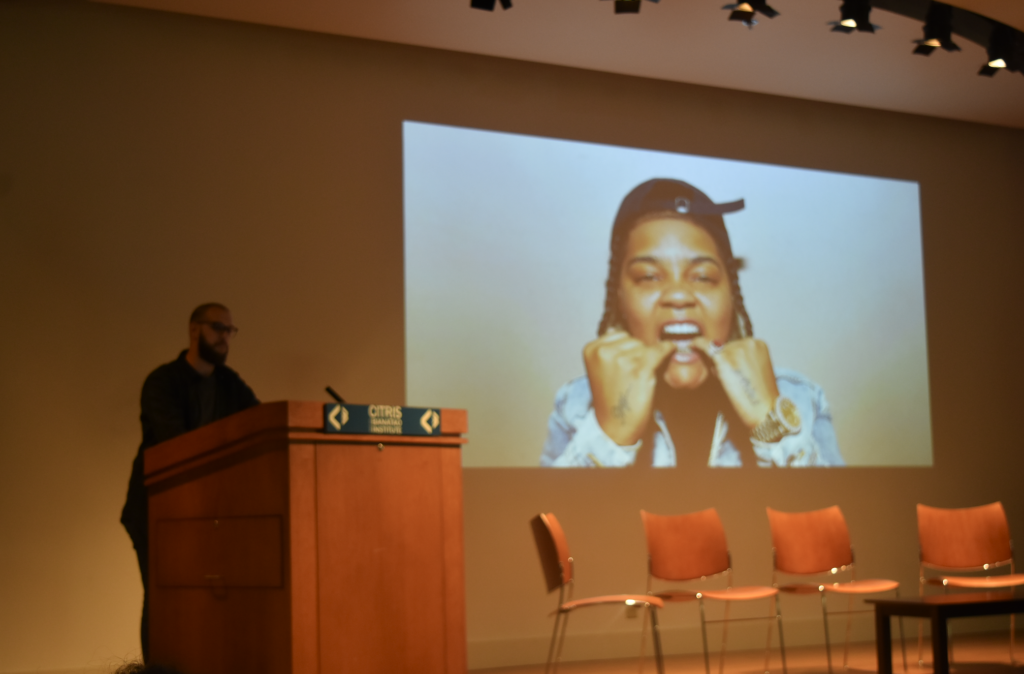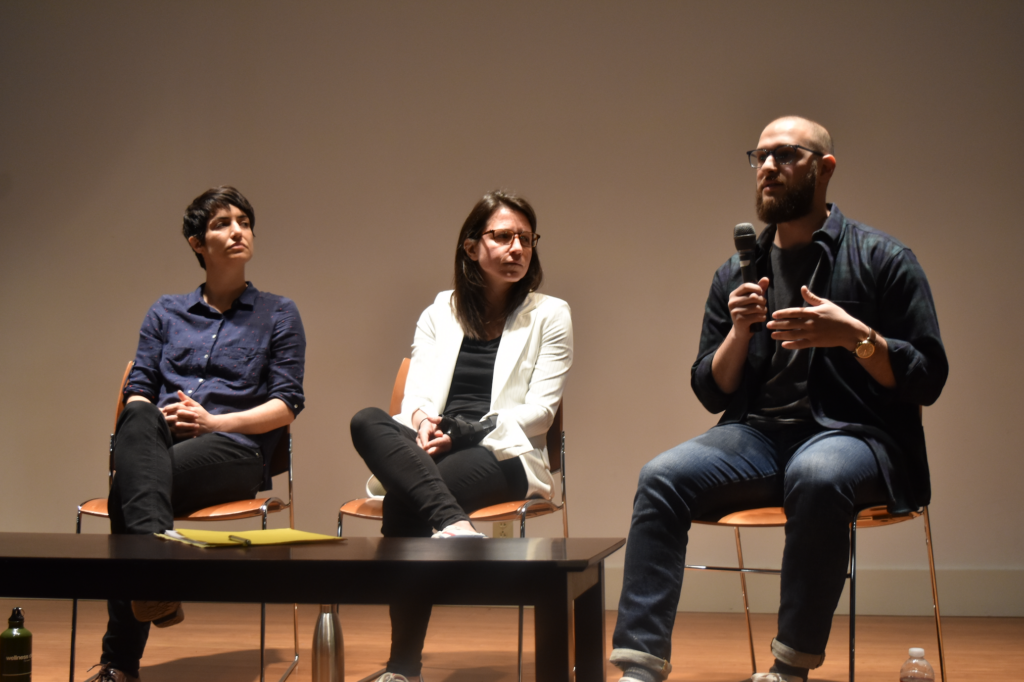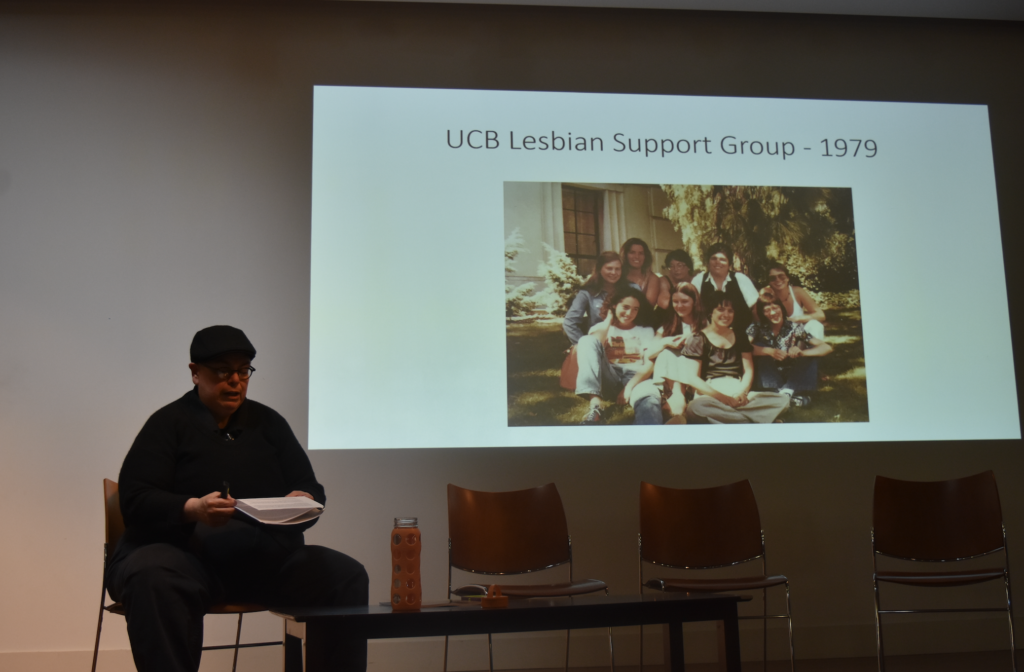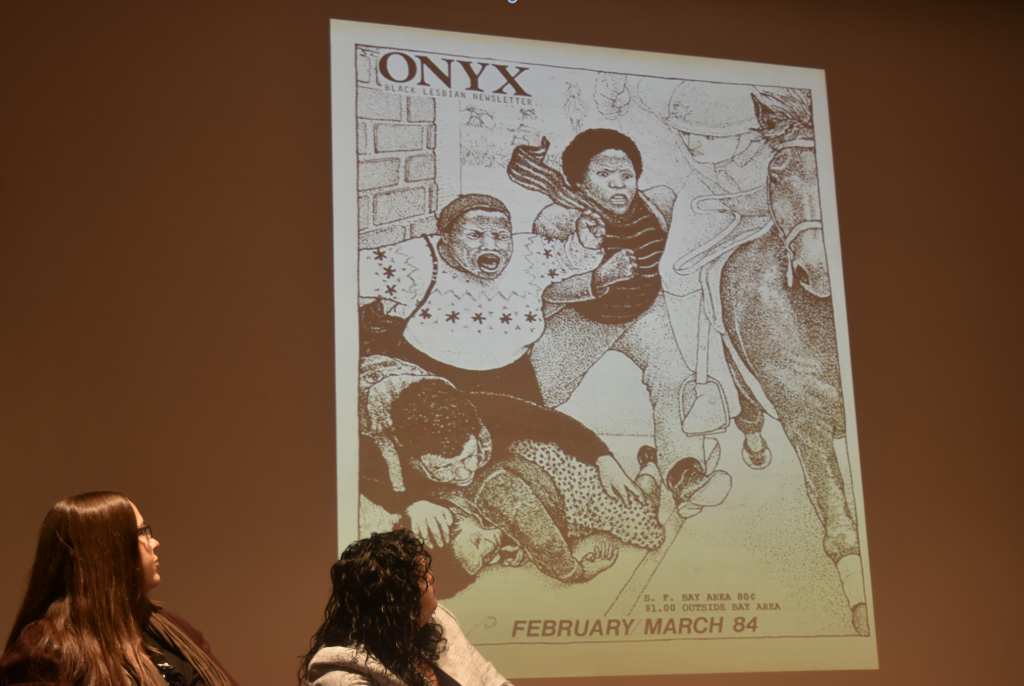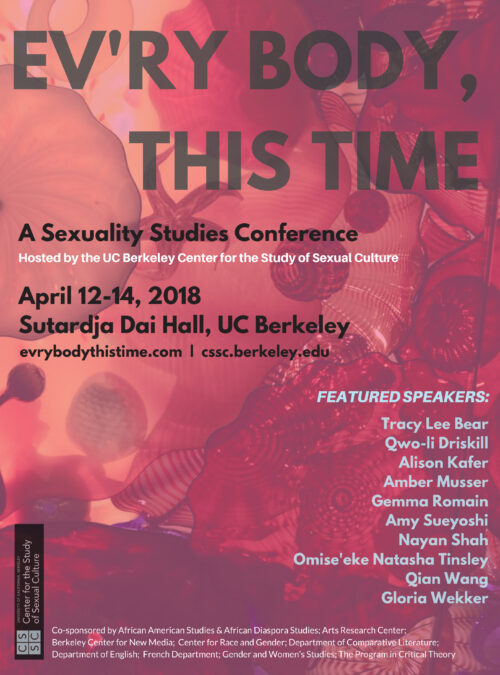 From April 12-14, 2018, the Center for the Study of Sexual Culture hosted a conference titled “Ev’ry Body This Time,” which featured invited guest speakers like Qwo-li Driskill, Nayan Shah, Tracy Lee Bear, and others, as well as panels and workshops which sought to collaboratively imagine the future, answering the conference’s ultimate call: What future do “we” want looking forward from where we stand?
From April 12-14, 2018, the Center for the Study of Sexual Culture hosted a conference titled “Ev’ry Body This Time,” which featured invited guest speakers like Qwo-li Driskill, Nayan Shah, Tracy Lee Bear, and others, as well as panels and workshops which sought to collaboratively imagine the future, answering the conference’s ultimate call: What future do “we” want looking forward from where we stand?
This call and challenge was of course reflected on the conference’s title itself. The elision in “ev’ry” gestures in multiple ways: to the bodies that have been exempted in various iterations of sexuality studies, and to our quixotic desire to (re-)emplace them. It refers as well to the shifting and ever-proliferating fact of bodies: the way that apparent gaps may not represent incompleteness, but point instead to troubled standards of perceiving or evaluating wholeness; that filling a gap can thus provisionally flesh out bodies that are at once legible and illegible. Race and gender, in their mutable complexities, sit at the core of these questions. Our apostrophe calls to a multitude of bodies, recognizing the potential for thinking through, substituting, re-visioning, and, ultimately, holding space for, bodies that exceed categorical legislation and rhetorical disciplinarity. We also note that embodiment is not everyone’s cup of tea. We flag the body, ev’ry body, because sensuousness has too often been left out of considerations of sexuality and politics. Simultaneously, we wonder how given languages about sex and meaning work in relation to disability, debility; in the realm of the digital; under the aegis of asexuality? “This time” means both that we view this as a conference that belongs to a history of academic conferences in queer studies and that we view this as a conference that happened in a perilous present moment. How is the critical study of sexuality evolving and in response to what imperatives? What is the relation of this time to other times (and places) and how are the particular urgencies of this time tied to other moments? Is the critical study of sexuality always explicitly about sexuality, now?
The speakers, panelists, and guests took on this invitation to think critically through an array of topics and issues, ranging from notions of embodiment and pleasure to issues of temporality and spatiality. Scroll through for videos and photos of the conference!
